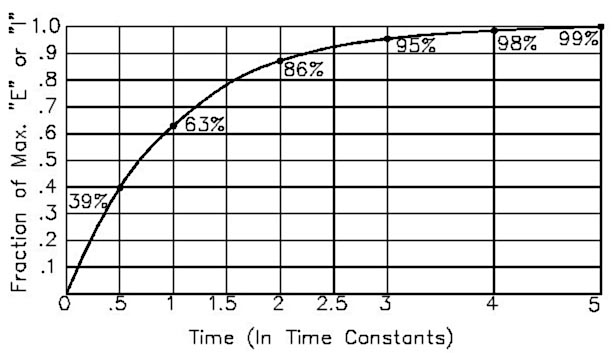Other Parts Discussed in Thread: ENERGIA
Hello,
I am working on finding the resistor value of RC circuit. My idea was to start charging the RC circuit until (Tau~=RC) at 63 % of full voltage, and calculating the elapsed time , and from the reference capacitor we can get the value of the resistor.
I wrote the following code, however, what I get was not precise. The main problem I know it is with the timer, Can someone help me to modify my timer initialization to make precise measurements.
Thank you a lot

/*
* This code is to measure resistor by charging and discharging capacitor
* using one general timer
* */
#include <msp430.h>
#include <stdio.h>
static unsigned int intervals=0; // Count number of 50,000 counts
/**
* main.c
*/
void main(void)
{
float StartTime=0;
float ElapsedTime=0;
float ResistorKohm,RefCapacitorNF=100;// capacitor in nano
WDTCTL = WDTPW | WDTHOLD; // stop watchdog timer
PM5CTL0 = ~LOCKLPM5; //unlock the GPIO pins
//set the clock
CSCTL0_H = 0xA5;
CSCTL1 |= DCOFSEL_6; // Set max. DCO setting = 8MHz
CSCTL2 = SELA__VLOCLK + SELS_3 + SELM_3;
CSCTL3 = DIVA__1 + DIVS__1 + DIVM__1;
//Setting the timer for counting
TA0CCR0 = 40000; // 40000 * 0.125us = 5000us = 5msec, where 1/8MHZ=0.125us
TA0CTL = TASSEL__SMCLK + MC__UP; // Set SMCLK, UP mode
TA0CCTL0 = CCIE; // Enable interrupt for Timer_0
_BIS_SR(GIE); // Activate interrupts previously enabled
//Setting up the pins
P1DIR |= BIT3; // Set P1.3 as output to charge capacitor
P1OUT &= ~BIT3; // Clear port1
P1SEL1 |= BIT5; // Configure P1.5 for ADC
P1SEL0 |= BIT5;
// Configure ADC12
ADC12CTL0 = ADC12SHT0_2 | ADC12ON; // Sampling time, S&H=16, ADC12 on
ADC12CTL1 = ADC12SHP; // Use sampling timer
ADC12CTL2 |= ADC12RES_2; // 12-bit conversion results
ADC12MCTL0 |=ADC12INCH_5; // A5 ADC input select(P1.5)
while(1)
{
ADC12CTL0 |= ADC12ENC; // Enable conversion
ADC12CTL0 |= ADC12SC;// Start conversion
P1OUT|=BIT3;
StartTime=((intervals*40000)+TA0R)*0.125;
while(ADC12MEM0 < 2889)
{
ADC12CTL0 |= ADC12SC;// Start conversion
} // the value is 63.2% of full ADC range =2889
ElapsedTime=(((intervals*40000)+TA0R)*0.125)-StartTime;
ResistorKohm=ElapsedTime/RefCapacitorNF;
printf("\n this is start time: %2.2f",StartTime);
printf("\n this is elapsedtime: %2.2f",ElapsedTime);
printf("\n the resistor : %8.3f",ResistorKohm);
P1OUT &= ~BIT3;
__delay_cycles(1000000);
}
}
//************************************************************************
// Timer0 Interrupt Service Routine
//************************************************************************
#pragma vector=TIMER0_A0_VECTOR
__interrupt void Timer0_ISR (void)
{
intervals = intervals + 1; // Update number of TA0CCR0 counts
}

